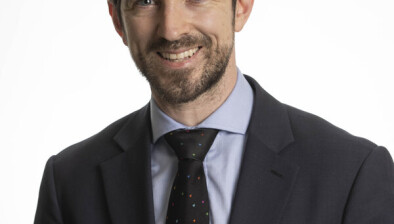UK Supreme Court judge calls for ECHR ‘reconsideration’ in light of migration pressures

Lord Hodge
The deputy president of the UK Supreme Court has entered the debate over the European Convention on Human Rights (ECHR), suggesting its terms may need to be “reconsidered” to address challenges posed by migration.
Lord Hodge said the UK should consider working with other countries to press for adjustments to the treaty, which some critics see as obstructing tougher measures on immigration. He stressed he was speaking in a personal capacity, not on behalf of the court.
“At a personal level, I would feel much more comfortable if we joined an international grouping to say to the Council of Europe, ‘We need to reconsider the terms of the deal struck 70 years ago in the light of current circumstances’,” he said.
“I think there is an emerging consensus within Europe that people should go back to the Council of Europe and say, ‘Look, we need to tweak the terms of the deal and the terms of the treaty to cope with what all European countries are facing, which is a level of migration that is causing alarm to their electorate’,” he added.
His remarks follow comments from the UK’s home secretary, Shabana Mahmood, who said reform of the ECHR was needed to restore public confidence in the rule of law.
Lord Hodge ruled out withdrawal from the convention, warning that leaving would damage Britain’s international standing.
“I have said to people who have been advocating withdrawal, ‘You have to take into account, if you go down that road there will be international repercussions for Britain’s standing if we are seen to withdraw altogether from the convention, because we will be joining some interesting bedfellows if we were to do that’,” he said.
His intervention comes as political figures such as Nigel Farage call for the UK to quit the ECHR entirely.
Lord Hodge, who joined the Supreme Court in 2013 and became deputy president in 2020, also defended the independence of the court, which has been at the centre of high-profile political disputes including Boris Johnson’s prorogation of Parliament in 2019 and Nicola Sturgeon’s 2022 attempt to hold an independence referendum.
He said the court’s role as the UK’s final court of appeal had not changed since it replaced the House of Lords in 2009, despite its greater visibility.
“We don’t take political decisions and the controversial cases are very much the product of a divided country in Britain at the moment, where people feel very strongly about particular political stances,” he said.
“Decisions we make may have political consequences, but the way we approach them is exactly the same as it was 20 or 30 years ago. We analyse the statute or the law and we express what it means. We’re not going to be political and I think we’re very careful not to do so.”








